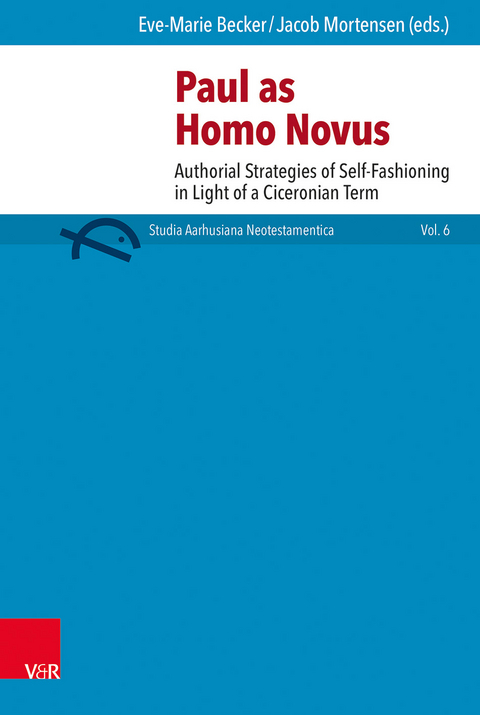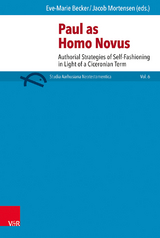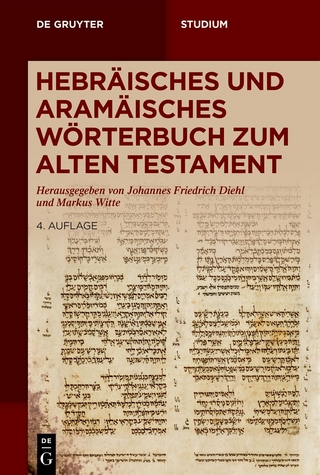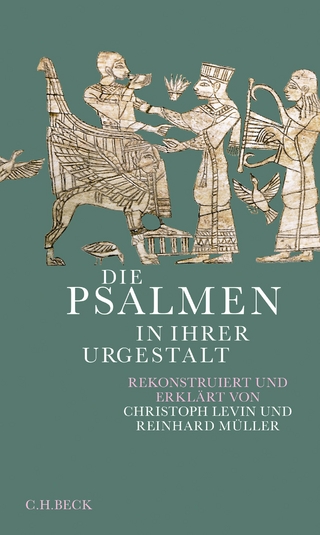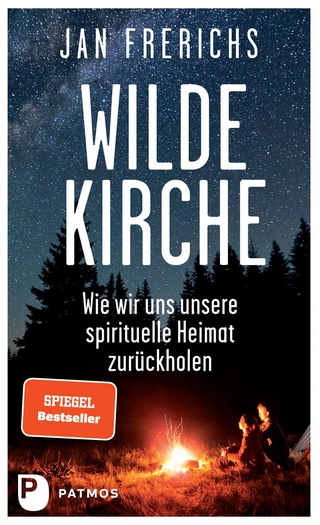Paul as homo novus
Vandenhoeck & Ruprecht (Verlag)
978-3-525-54048-0 (ISBN)
20ths century research in St. Paul is widely impacted by Adolf Deissmann's prominent view on the apostle as a "homo novus" (1911). But where does this concept originate from, and what does it imply? This collection of articles does not only re-evaluate Deissmann's concept by tracing it back to its historical and socio-political origins in Cicero and exploring how authors from (early) Imperial Time perceive and transform the homo novus paradigm by diverse modes and strategies of literary self-fashioning. Scholars ranging the fields of New Testament Studies, Greek and Latin Philology, Ancient History, Patristics, and Comparative Literature also examine how the Ciceronian paradigm was early on transformed, disseminated, and applied as a literary concept and an authorial topos of self-molding. One of the leading questions throughout the volume thus is: How do authors like Cicero, Horace, Paul, Tacitus, Seneca, Athanasius, and Augustine fashion themselves in accordance to or in difference from the idea of being a "new man"? It is argued that by means of literary self-configuration, indeed, some of these writers - such as Paul and Augustine - want to appear as "new men" by either altering traditional social, moral, religious, or political roles, or by creating new patterns of social behavior and religious self-understanding.
Oda Wischmeyer ist emeritierte Professorin für Neues Testament und Antikes Judentum an der Theologischen Fakultät der Universität Erlangen-Nürnberg.
Dr. Ulrike Egelhaaf-Gaiser ist seit 2008 Professorin für Klassische Philologie (Latinistik) an der Universität Göttingen.
Uta Heil lehrt Kirchengeschichte an der Evangelisch-Theologischen Fakultät der Universität Wien. Zu ihren Forschungsschwerpunkten gehören Streit um Trinität (4.–6. Jh.), apologetische Literatur des 2. Jh., das Christentum in der Zeit der »Völkerwanderung« und die Kulturgeschichte des Sonntags.
René Falkenberg is Associate Professor at Aarhus University.
Dr. theol. Eve-Marie Becker ist Professorin für Neues Testament an der Evangelisch-Theologischen Fakultät der WWU Münster.
Jacob P.B. Mortensen is Associate Professor of New Testament at Aarhus University.
| Erscheinungsdatum | 11.04.2018 |
|---|---|
| Reihe/Serie | Studia Aarhusiana Neotestiamentica - SANt ; Volume 006, Part |
| Co-Autor | Oda Wischmeyer, Andreas Mehl, Henriette van der Blom, Christopher Degelmann, Ulrike Egelhaaf-Gaiser, Therese Fuhrer, Christopher Mount, Johanna Schumm, Tobias Uhle, Maik Patzelt, Lauri Thurén, Uta Heil, René Falkenberg |
| Verlagsort | Göttingen |
| Sprache | englisch |
| Maße | 160 x 237 mm |
| Gewicht | 719 g |
| Themenwelt | Geisteswissenschaften ► Philosophie ► Philosophie Altertum / Antike |
| Religion / Theologie ► Christentum ► Bibelausgaben / Bibelkommentare | |
| Schlagworte | Antike • Antike Philosophie • Christentum • Exegese • Historische Theologie • Neues Testament • Paulus (Apostel) |
| ISBN-10 | 3-525-54048-5 / 3525540485 |
| ISBN-13 | 978-3-525-54048-0 / 9783525540480 |
| Zustand | Neuware |
| Haben Sie eine Frage zum Produkt? |
aus dem Bereich
